Time out in Thailand
(14-19 February)
After bidding a fond farewell to Vietnam, it was time to continue our journey into the mountainous north of Southeast Asia. A short flight later, the six of us touched down in Chiang Mai in the northern province of Thailand.
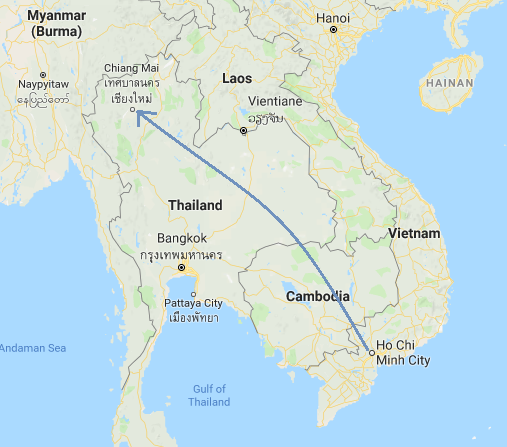
Chiang Mai is a lovely little city with a warm local culture and a calm pace of life, tucked away in the mountains far from the more bustling and touristy capital of Bangkok. It was without doubt the most chill part of my holiday. Much of my time was put towards lie-ins, games of pool, reading books in the hostel lounge and drinking iced fruit smoothies, available at every street corner for 30 baht each (£0.75). Having gone through a whole month of intense backpacking, including a total of 167 hours onboard trains, I was quite happy to take it easy for five days.
We met a group of seven other scholars in Chiang Mai, who’d already been there three days, after coming from the Phi Phi Islands in south Thailand. It was nice to be part of a large group again and hear everyone’s stories from gallivanting across Asia.
Despite the slower pace of things, however, we still made sure not to miss out on what Thailand had to offer. On our first morning we visited Wat Chedi Luang, a temple complex in the city centre. Around 94% of Thais practise Buddhism, and the gold, grandeur and meticulous sculpture work of the temple – one of many in the city – certainly reflected this.
The Wat Chedi Luang temple held a “Monk Chat” program, where we could sit down and have a casual conversation with local monks. We asked them a few questions about their beliefs and practices, and about their favourite foods, hobbies and pastimes as well. I feel the chat helped us see the monks as real people like us, rather than curiosities or tourist attractions.
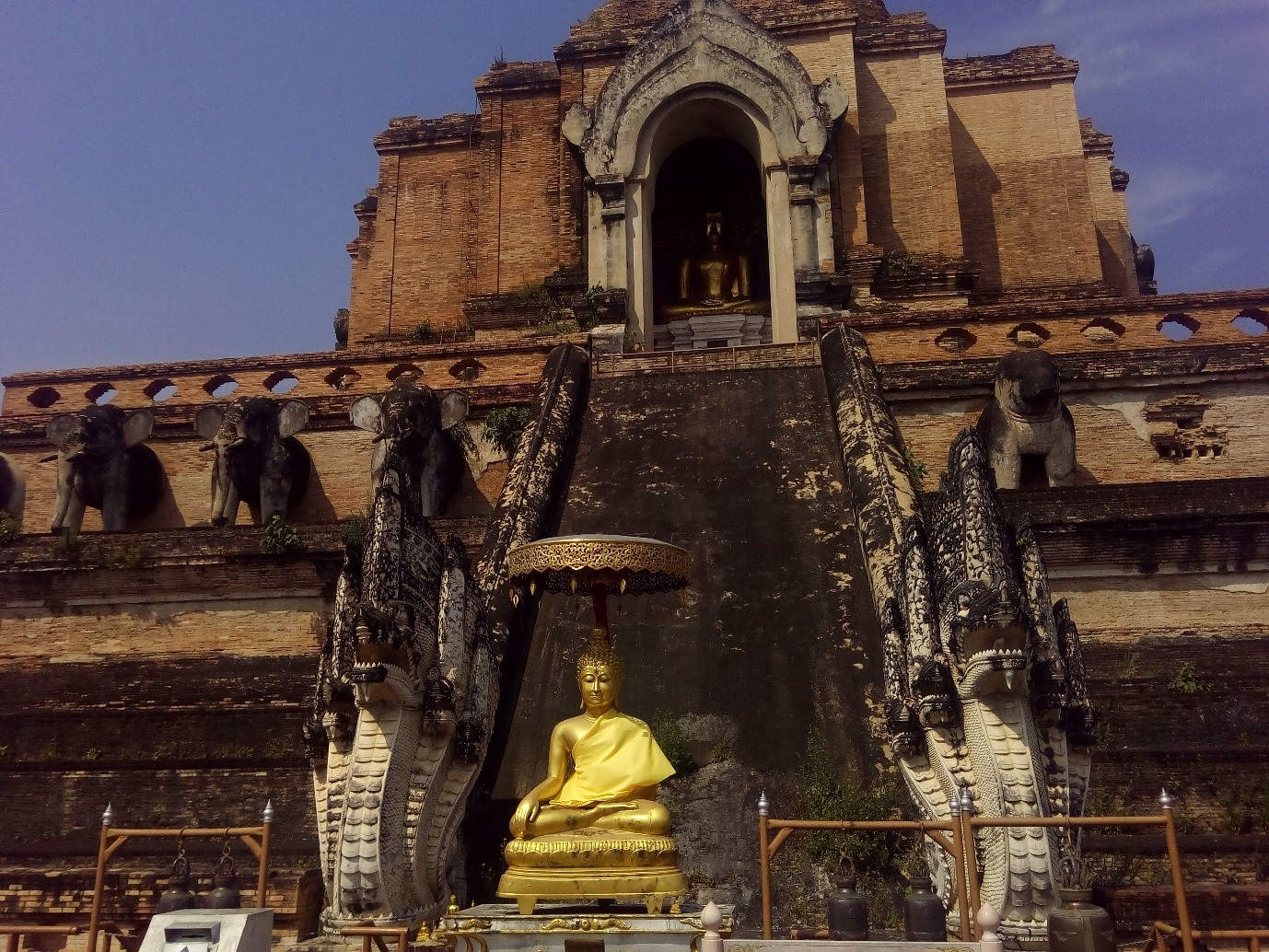
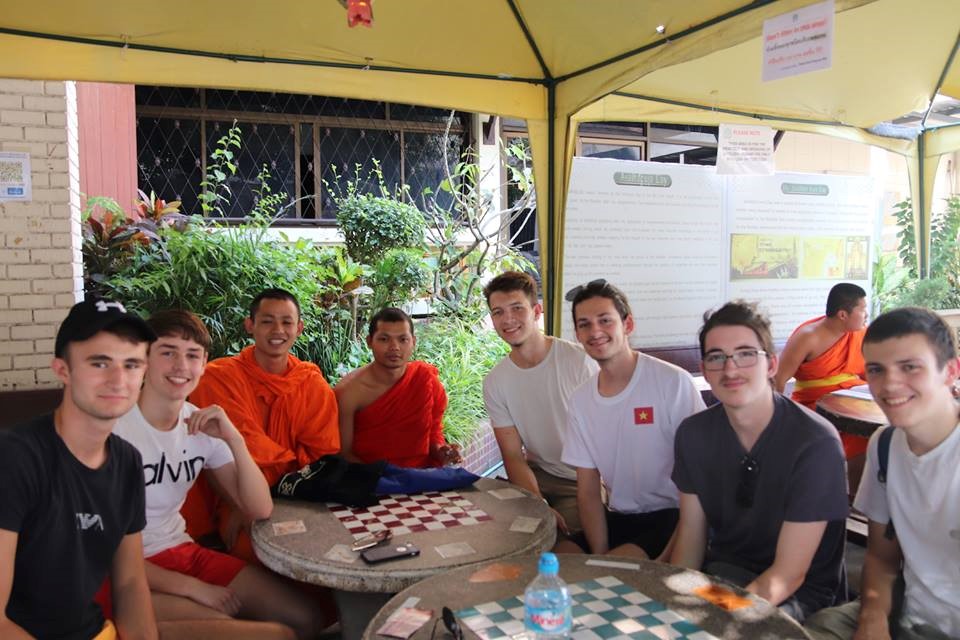
The next day we spent an afternoon with elephants at a jungle sanctuary on the outskirts of Chiang Mai. Until then, I’d only seen elephants as pictures in children’s books, and maybe one time at the zoo when I was very young, so I was looking forward to meeting them up close. They are likely the most intelligent, docile and playful animals I’ve ever encountered, and I could tell they enjoyed the afternoon as much as we did. After feeding them bananas and bamboo leaves, we led them down to the river for a mud bath and a good rinse (which turned out more like a water fight). After the elephants had played long enough, we went and showered, changed clothes and enjoyed a Thai curry before taking a jeep back to Chiang Mai. I remember this as one of the most enjoyable afternoons of my gap year, and it was a privilege to experience these grand, gentle animals up close.
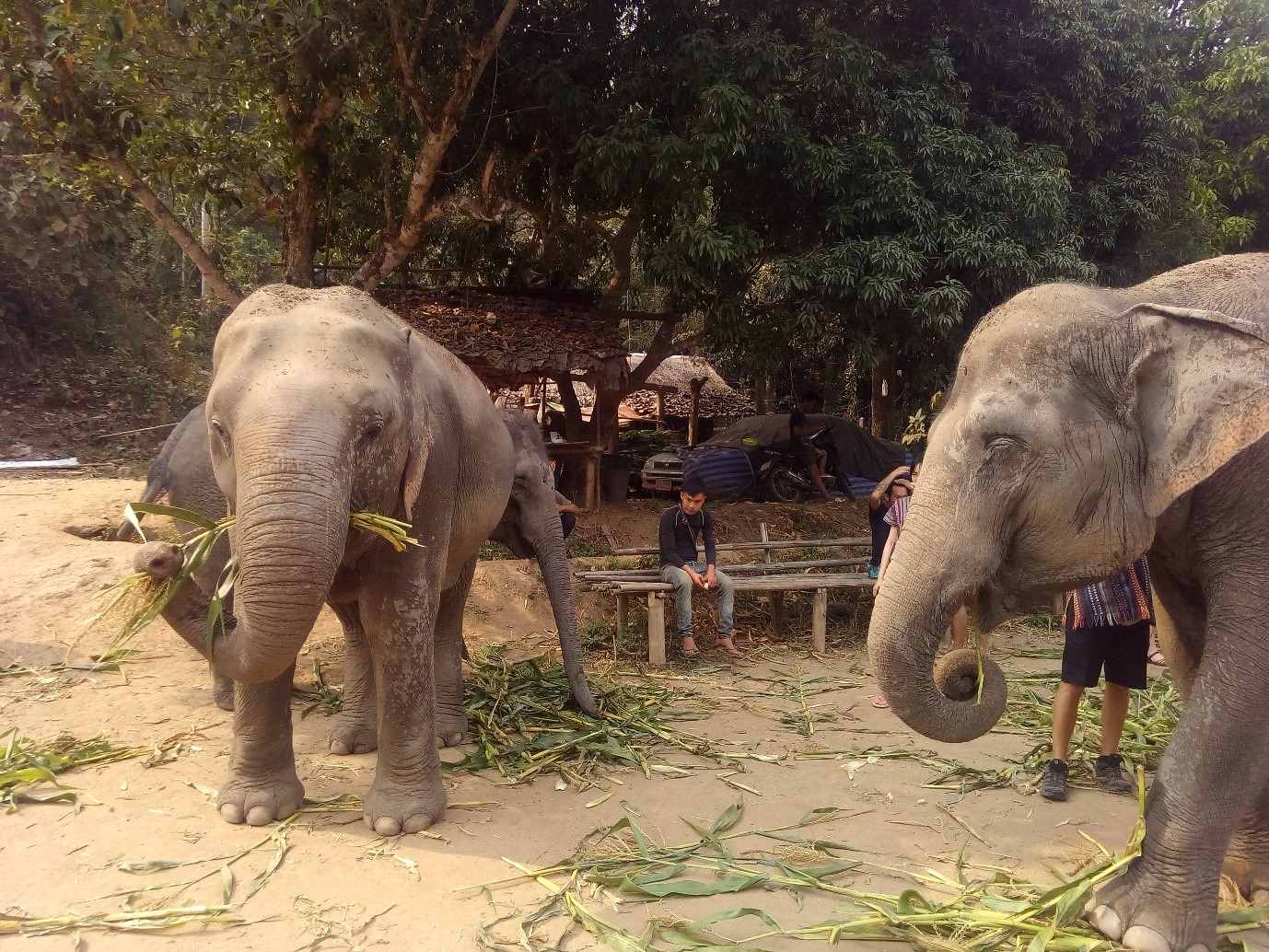
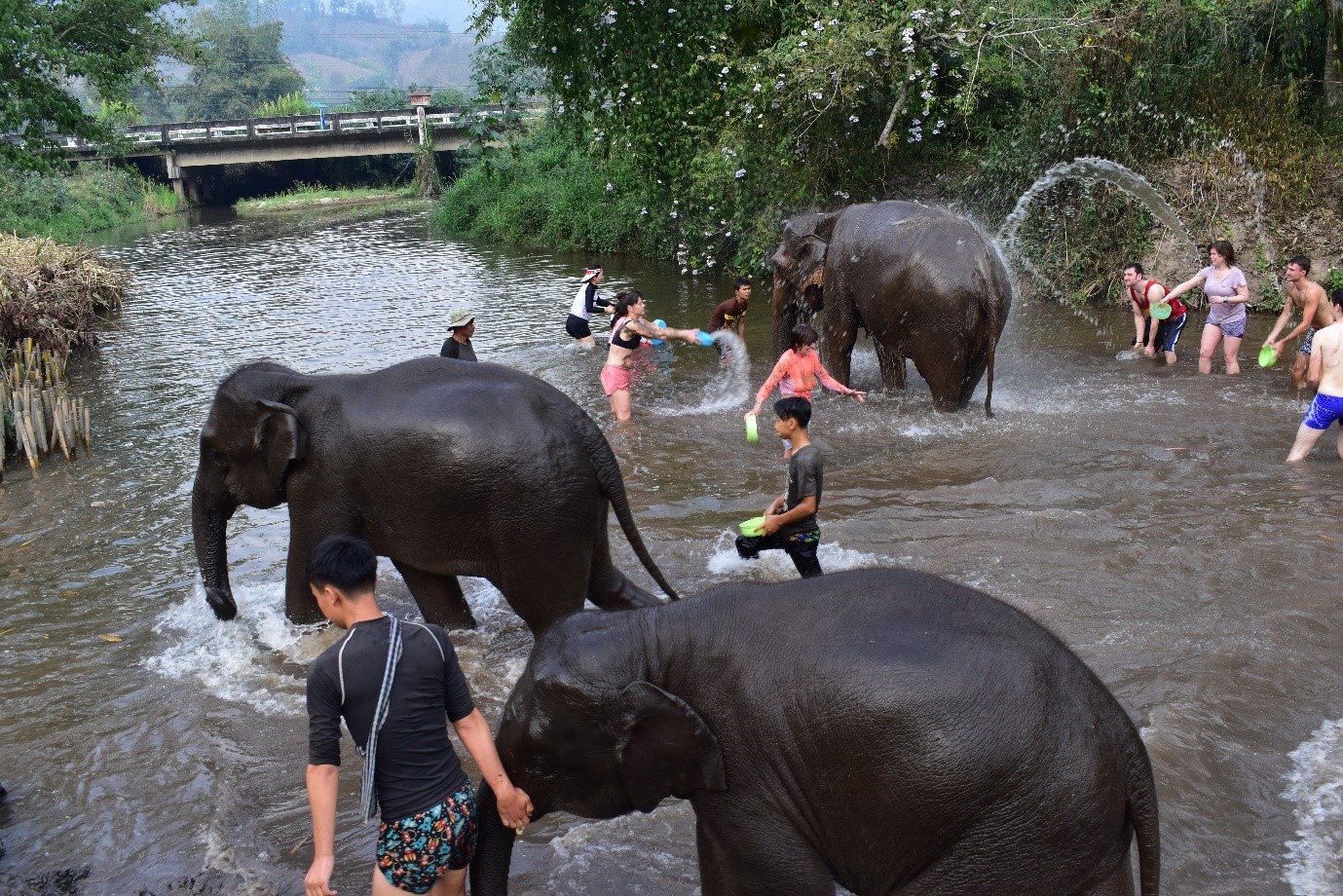
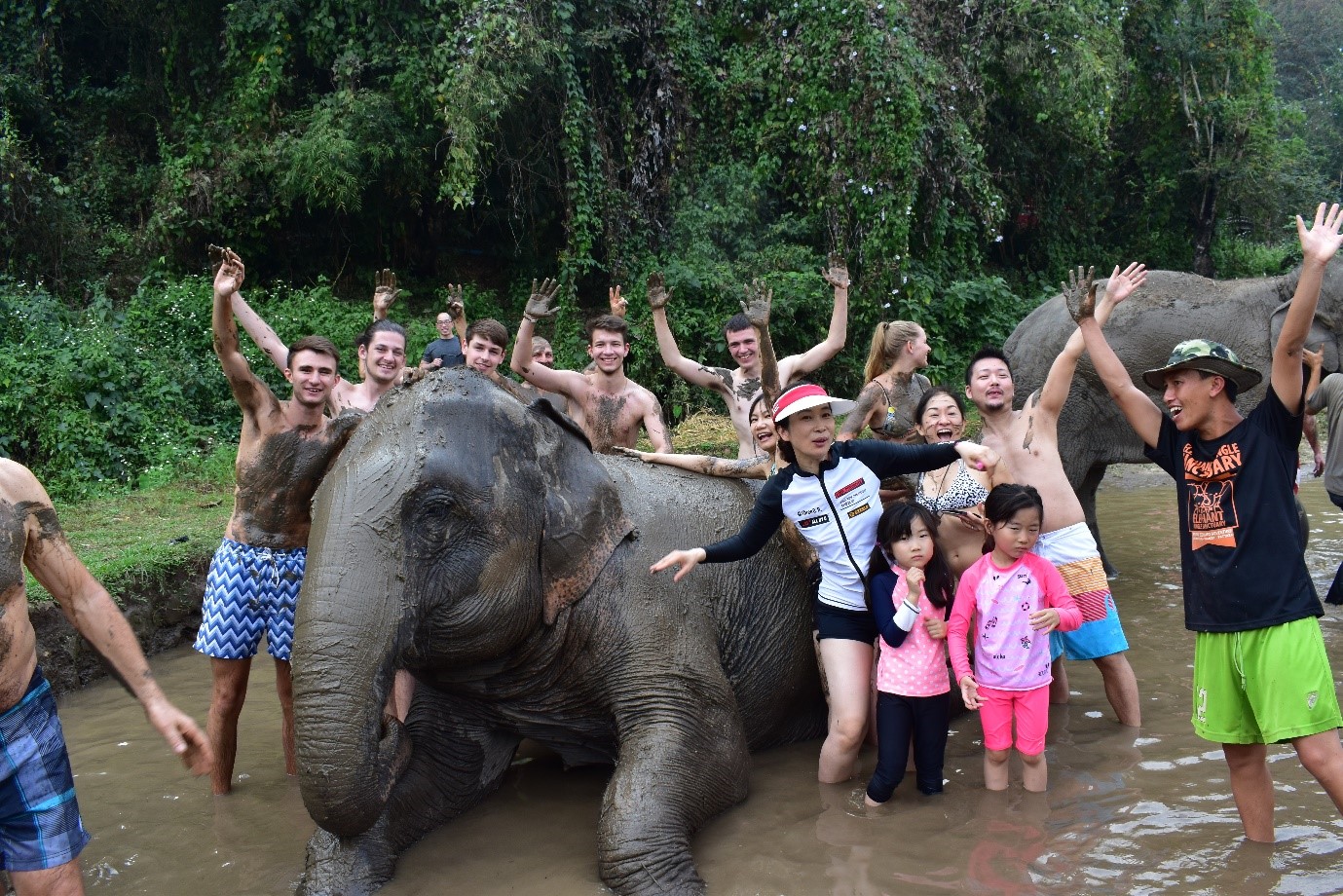
The following day most of the scholars went on a day trip to a nearby canyon, however Jack, Ross and I decided to stay in Chiang Mai. The three of us went for a traditional massage (something Thailand is most renowned for) at a parlour staffed by ex-prisoner women. The place was set up to help rehabilitate former prisoners by training them in Thai massage, so we thought it was a good choice. We opted for the foot massage, however I enjoyed it so much that I went for the full body massage the next day. Admittedly it was rougher and more “hands-on” than we expected, but when it was over my feet felt amazing – or, as an English tourist next to us described it, “pleasantly pummelled”.
That evening I attended the Chiang Mai International Church, a community of about 350 expats and locals. After the service I went out for dinner with a family from the church who worked in Bible translation for Thailand’s minority languages. I was surprised to meet people in the church with such a thorough knowledge of linguistics, and it certainly made for a long, fascinating dinner conversation.
The next day four of us went to an evening cooking class on a nearby farm to learn some Thai recipes. We tried making dishes such as red curry, prawn soup, spring rolls and pad thai – a well-known Thai dish involving stir-fried noodles with egg, tofu, fish sauce and chopped peanuts – using ingredients from a local market and the school’s organic garden. Aside from the prawn soup, which could have saved us some gastric discomfort had it been cooked a little longer, I’d say we did an OK job.
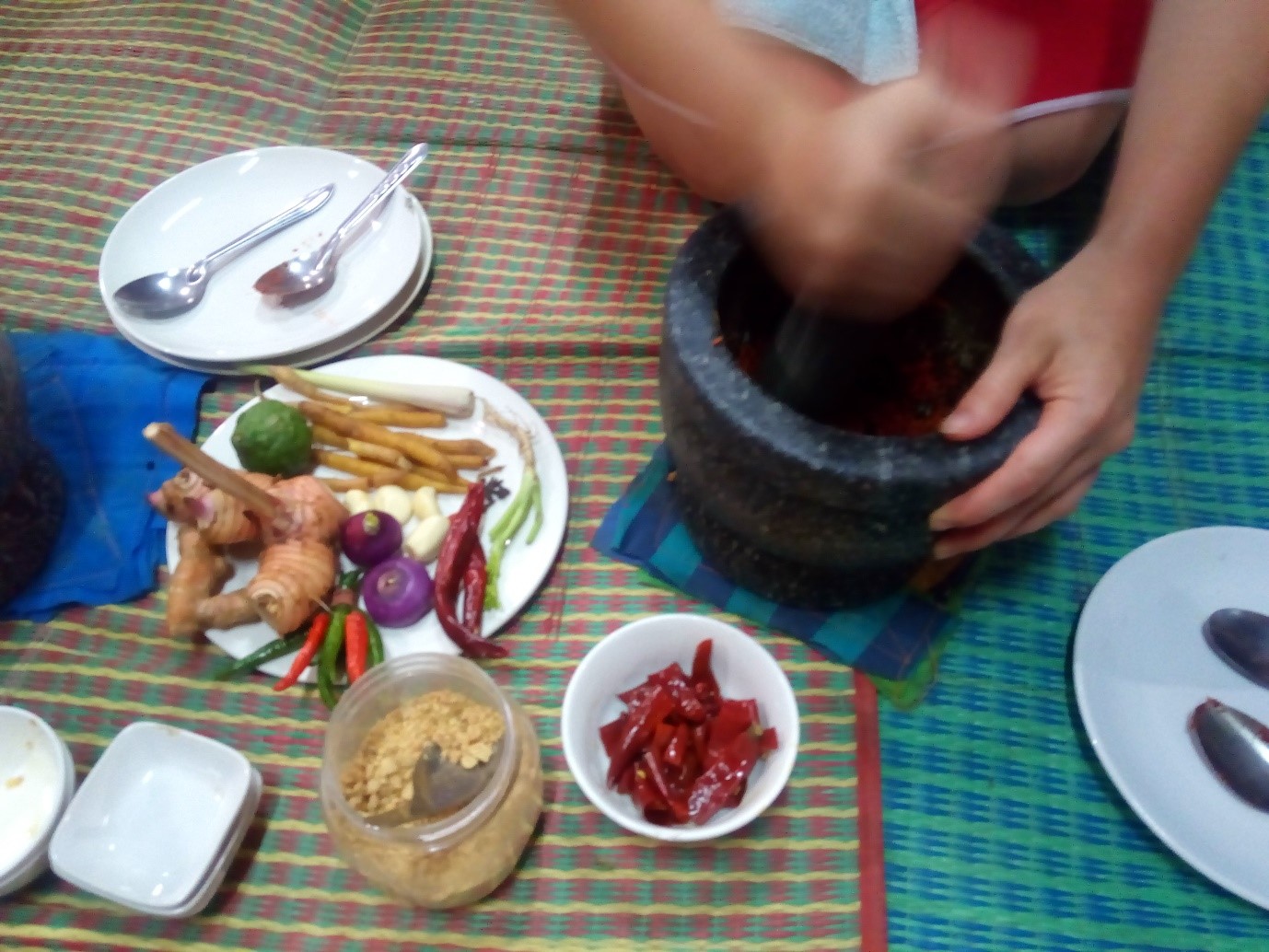
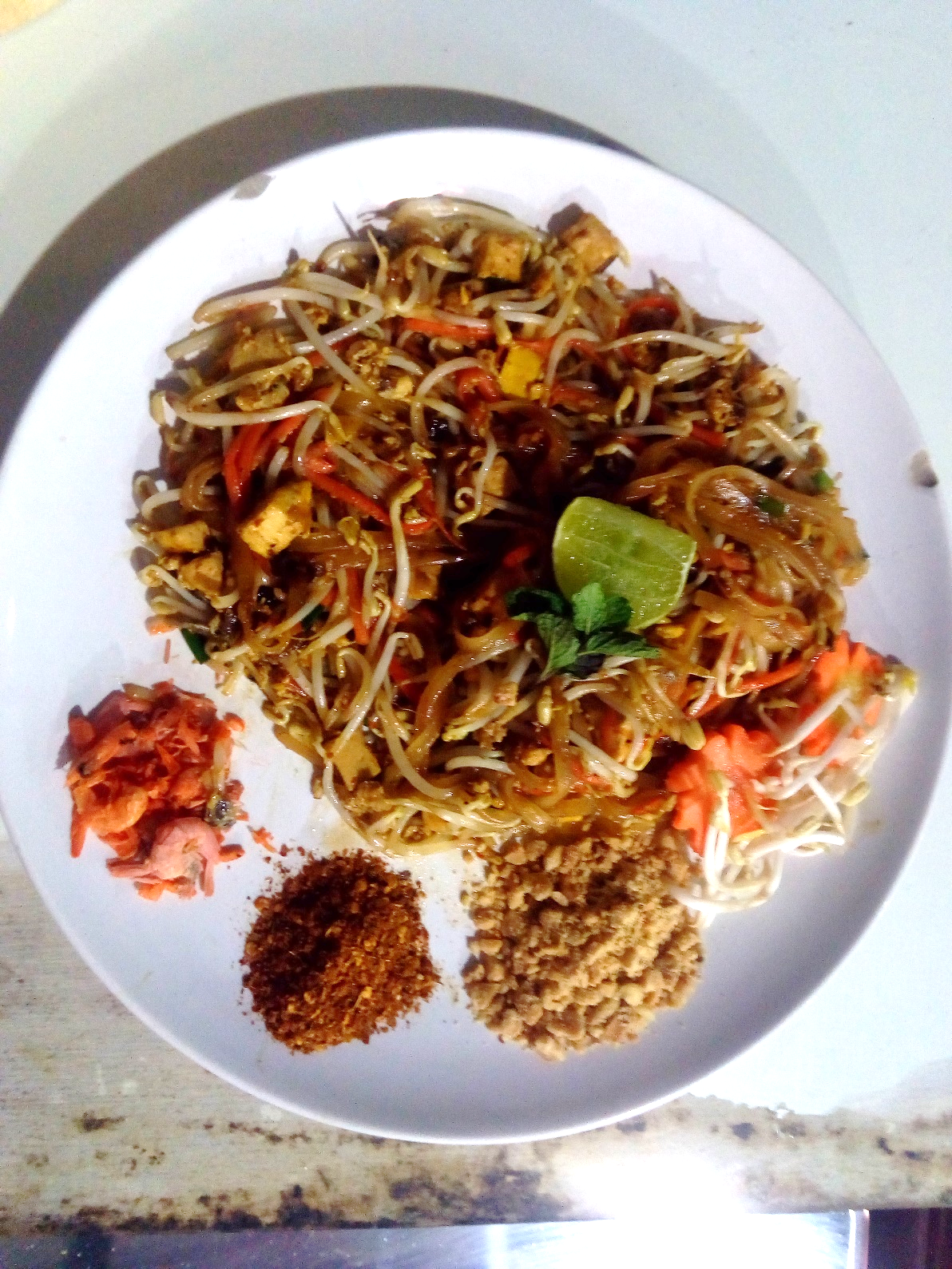
On our last day we visited Wat Phra That Doi Suthep – the most important temple in Chiang Mai, situated on a hill overlooking the city – before I headed to the airport for my flight to Hong Kong and the others left for Bangkok. I’m glad I chose to spend part of the holiday travelling with other scholars – it was an enjoyable break from solo travel, and it felt more like a proper gap year experience.
Nevertheless, when I took off from Chiang Mai airport, I was happy to be back on my own two feet, excited to see what the last leg of my journey had to offer…
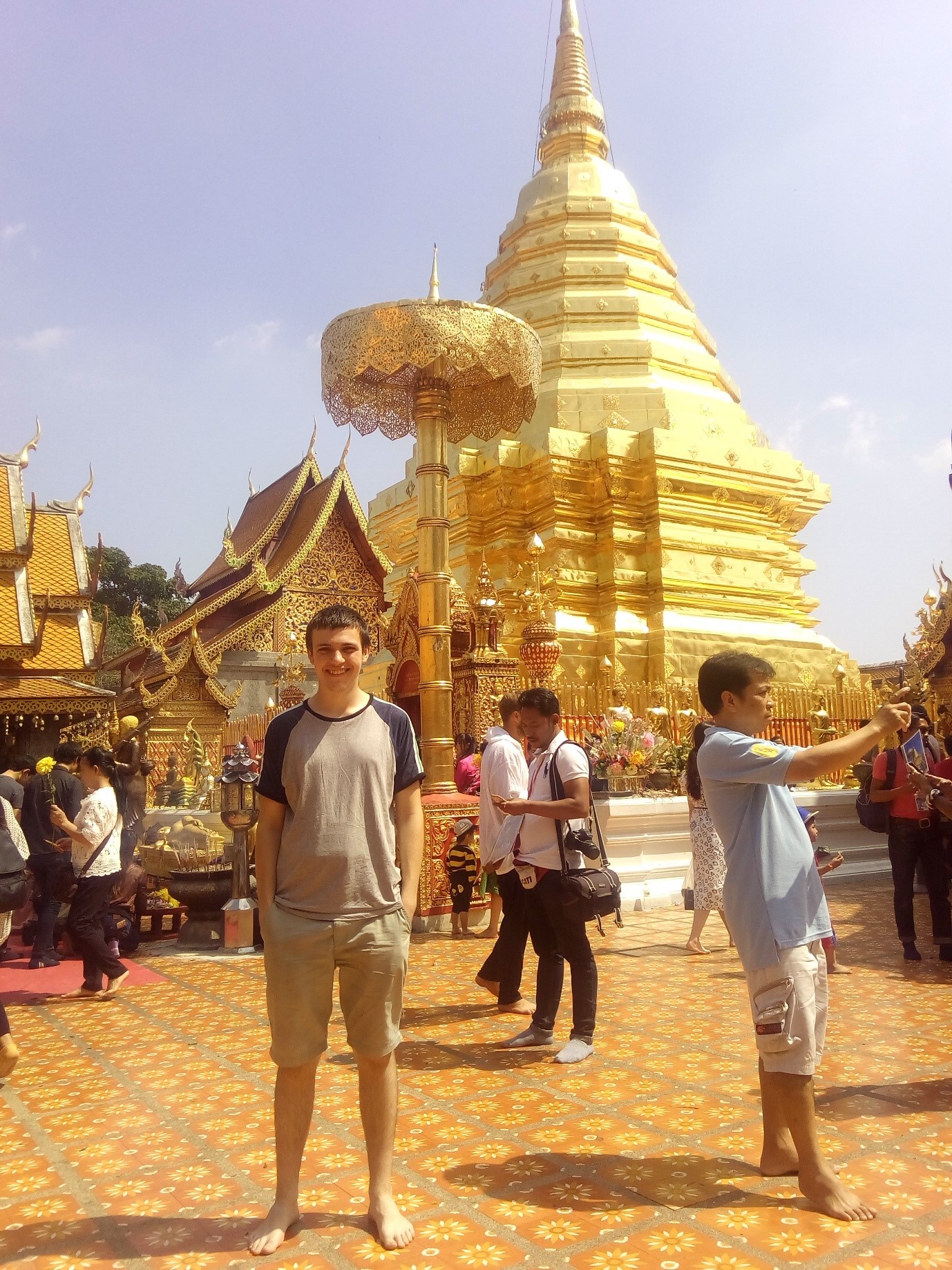
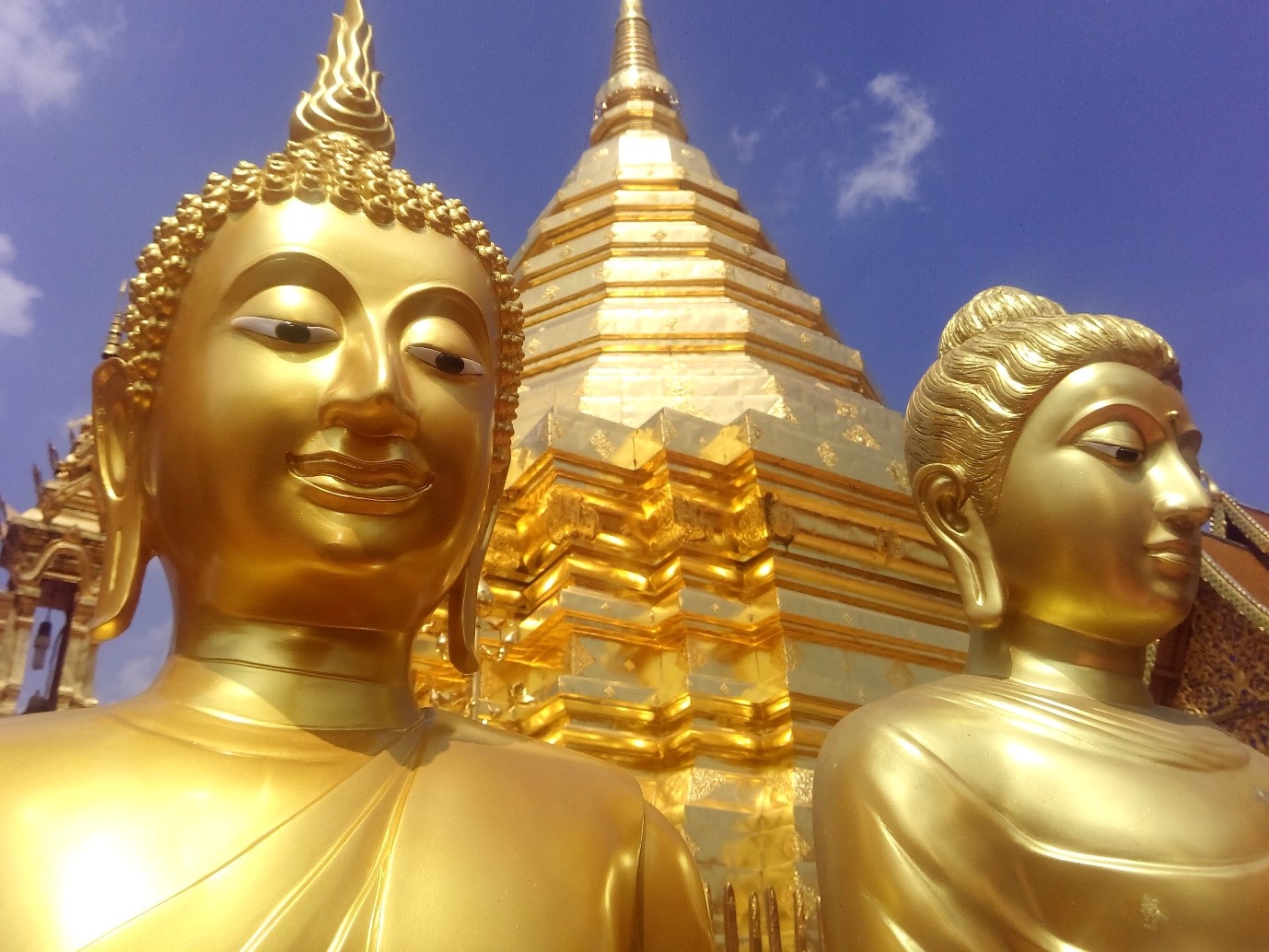
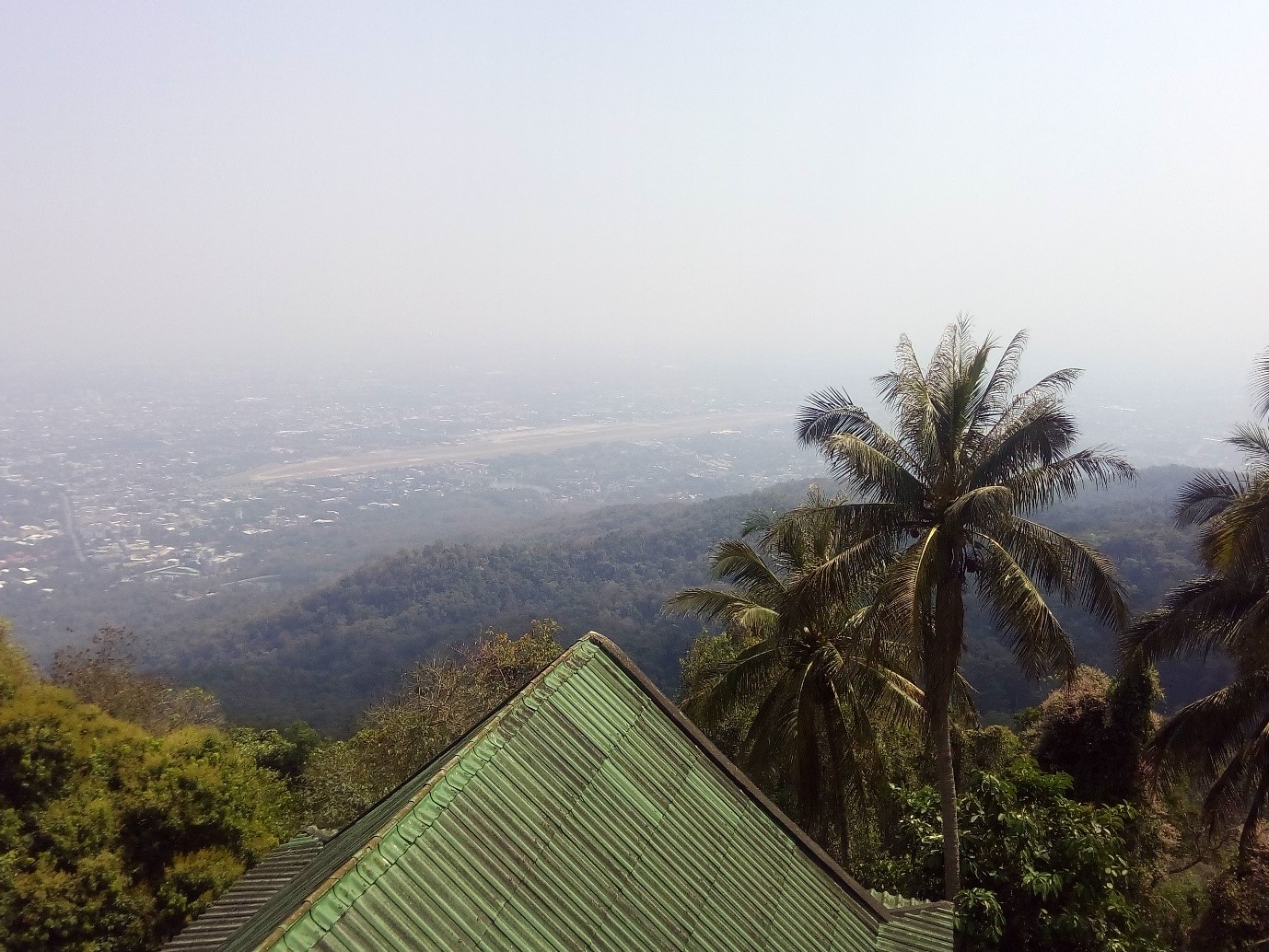
A Taste of Thai Culture
Of all the places I travelled, I did the least research on Thailand – still, I found a few spare minutes to read up on some the language and lifestyle.
Thai culture places a heavy emphasis on respect – whether towards the government, the religion, monks, parents, teachers or bosses – and disorderly behaviour in public (such as displays of affection) can show serious disrespect. Unlike other Asian countries, Thailand still has a monarchy. Thai people pay a great deal of respect and honour to their king, and his portrait can be seen in several public places. Respect of the monarchy goes so deep that anyone who insults the king can be jailed for 3 to 15 years.
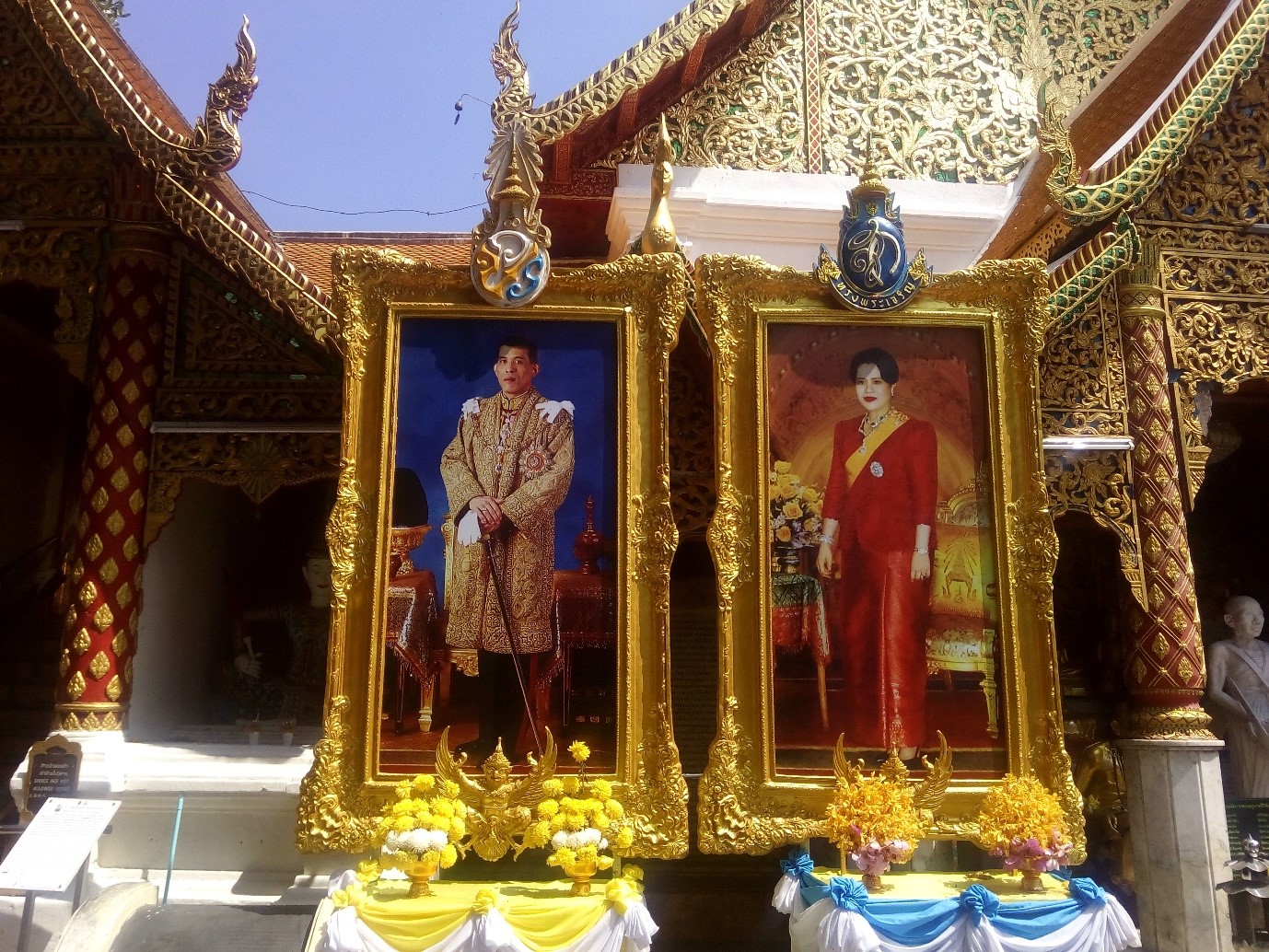
One thing Thai people particularly value is having a jai yen (“cool heart”): the ability to remain calm under pressure and not lose one’s temper. The Thais we encountered seemed to possess this quality – cool, patient, cheerful and carefree. Thai people sometimes criticise Westerners for their jai ráwn (“hot heart”).
What do you think about the idea of having a “cool heart”? Is it a good thing to stay calm and composed under pressure, to turn the other cheek when adversity comes your way? Is it sometimes OK to get angry and complain?